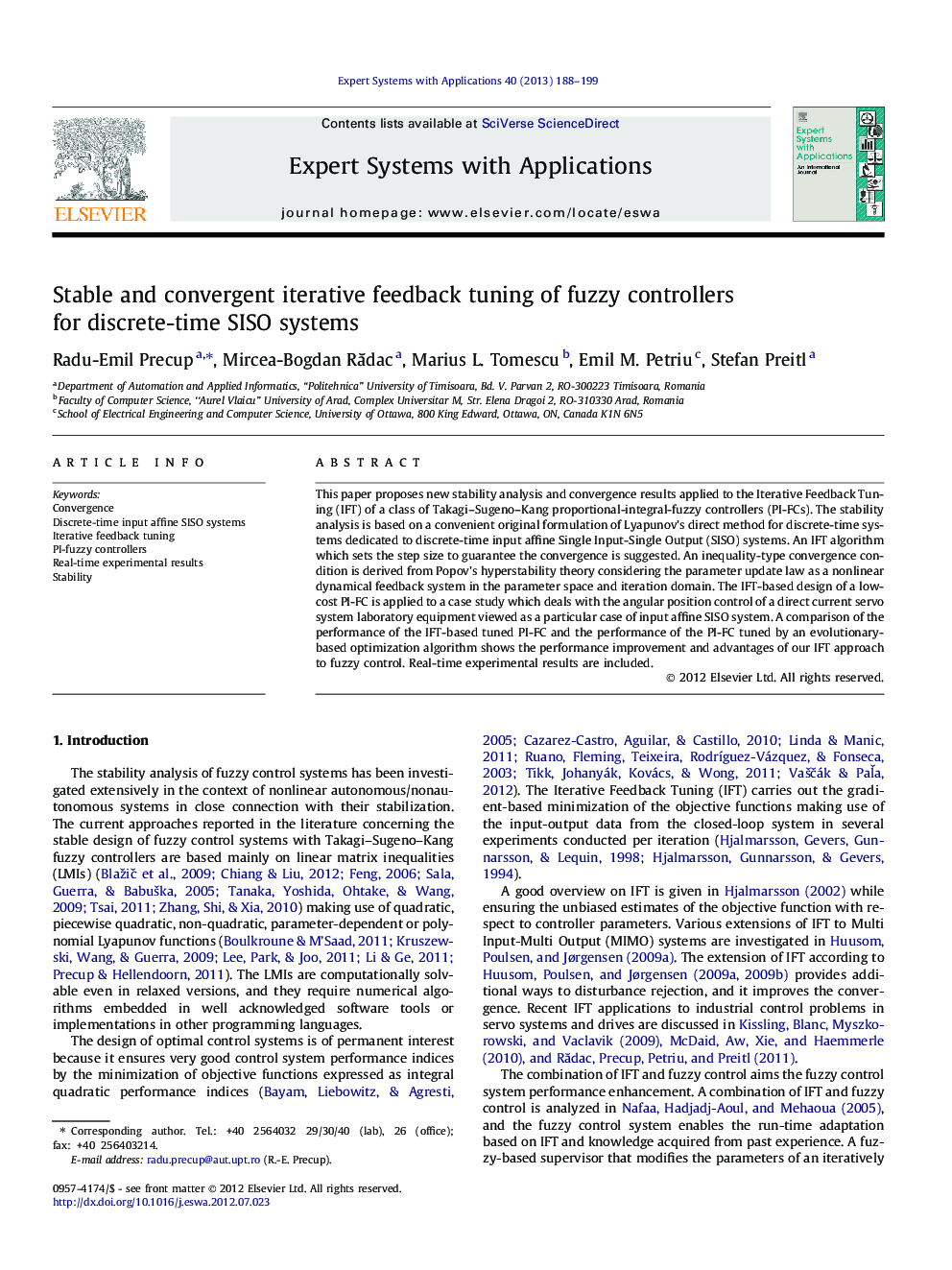| Article ID | Journal | Published Year | Pages | File Type |
|---|---|---|---|---|
| 384206 | Expert Systems with Applications | 2013 | 12 Pages |
This paper proposes new stability analysis and convergence results applied to the Iterative Feedback Tuning (IFT) of a class of Takagi–Sugeno–Kang proportional-integral-fuzzy controllers (PI-FCs). The stability analysis is based on a convenient original formulation of Lyapunov’s direct method for discrete-time systems dedicated to discrete-time input affine Single Input-Single Output (SISO) systems. An IFT algorithm which sets the step size to guarantee the convergence is suggested. An inequality-type convergence condition is derived from Popov’s hyperstability theory considering the parameter update law as a nonlinear dynamical feedback system in the parameter space and iteration domain. The IFT-based design of a low-cost PI-FC is applied to a case study which deals with the angular position control of a direct current servo system laboratory equipment viewed as a particular case of input affine SISO system. A comparison of the performance of the IFT-based tuned PI-FC and the performance of the PI-FC tuned by an evolutionary-based optimization algorithm shows the performance improvement and advantages of our IFT approach to fuzzy control. Real-time experimental results are included.
► An IFT algorithm which sets the step size to guarantee the convergence is suggested. ► An inequality-type convergence condition is derived from Popov’s hyperstability theory. ► Discrete-time input affine SISO systems are considered. ► Lyapunov’s direct method is applied to tune Takagi–Sugeno–Kang PI-fuzzy controllers. ► An IFT-based tuned PI-fuzzy controller for a servo system shows performance improvement.
